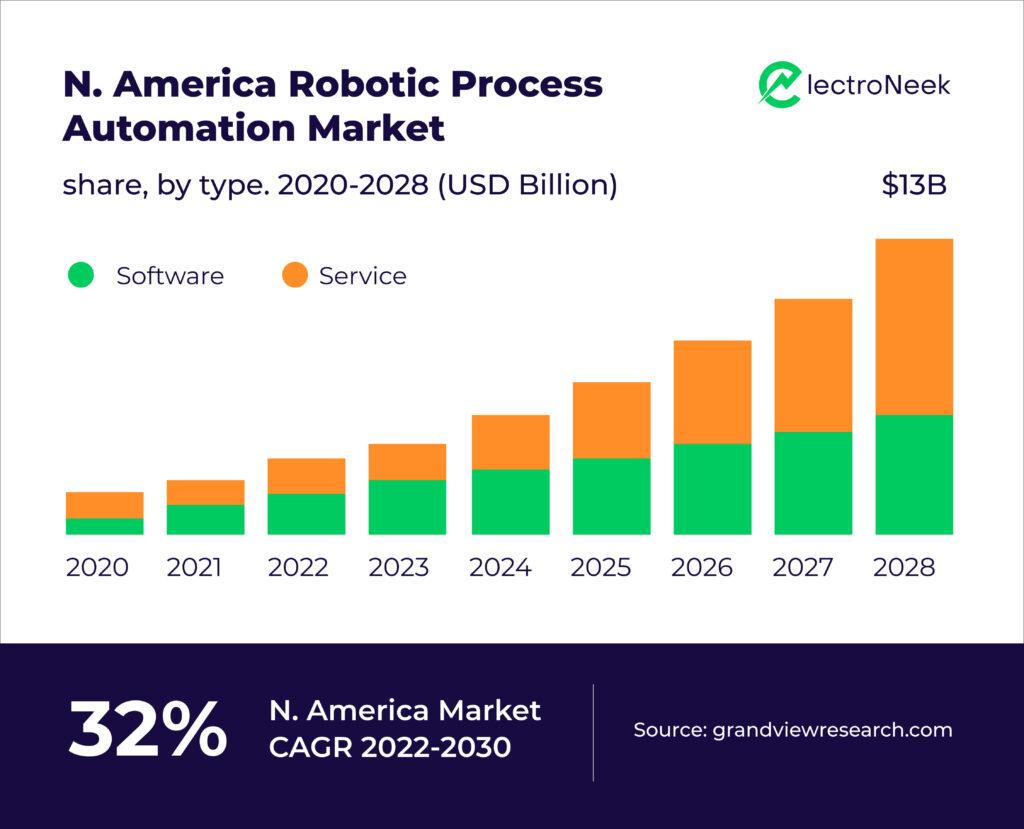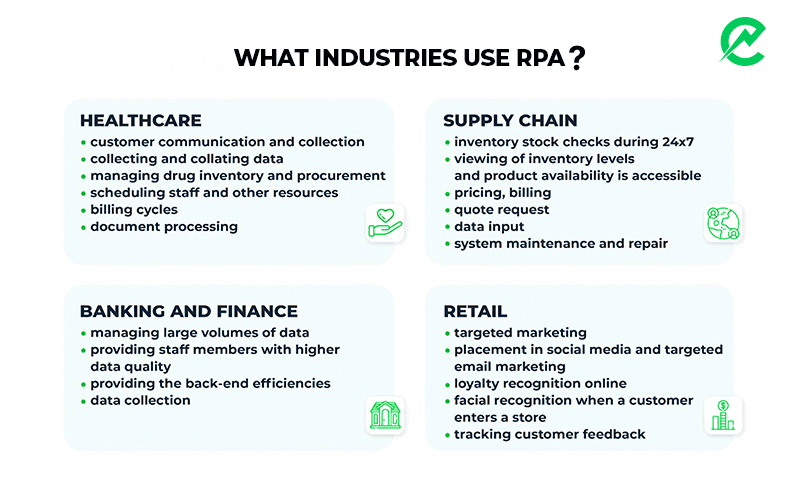As soon as we hear the word robot, our imagination conjures up images from Hollywood movies.
Robotic Automation Processes technology is far from the image of a Terminator or a RoboCop. Even so, the effectiveness of RPA technology for business is just as fascinating as the robotic characters in movies.
Let's take a closer look at what the RPA is.
What is Robotic Process Automation (RPA)?
RPA is a form of automation that uses software bots to complete repetitive, rules-based tasks.
RPA bots are deployed to mimic the actions of a human user to interact with digital systems just as a person would.
RPA bots could, for example:
- log into an application
- retrieve data from a database
- populate a spreadsheet without human intervention.

In addition to highly technical tasks, RPA bots can automate virtually any type of work.
They are the greatest assistant for automating back-office processes, including data entry and claims processing.
RPA is "software with a brain"
According to Gartner, optimizing operational processes can reduce operational costs by 30%. As a rule, employees spend between 5 and 6 hours on repetitive or duplicate tasks. Using RPA, these tasks can be done faster and more efficiently.
How Big Is The RPA Industry?
According to Grand View Research, the Global Robotic Process Automation market size is expected to reach $13 billion by 2028.

Why is Robotic Process Automation In Needed?
RPA Services Providers have been able to help their clients to improve data accuracy and eliminate errors. Many industries, including banking, insurance, and manufacturing, have paid for RPA services. This technology is poised to revolutionize the way we work.
For example, consider an organization that receives customer orders via email. A human employee might copy and paste the data from the email into an order entry system.
But if even one piece of data is entered incorrectly — the customer's shipping address — the order will likely be delayed or canceled.
The RPA bots you build on the ElectroNeek platform can automatically enter data from emails by copying the data and pasting it into the order entry system without any possibility of error.

Another reason why RPA Service Providers have become so valuable to organizations is that they free up the time employees from repetitive tasks, like document processing. In this way, employees focus on strategic projects.
NEXT STEP:
Robotic process automation is a powerful tool that can help organizations improve data quality, compliance, efficiency, and communication. If you're looking for ways to help organizations streamline back-office processes, RPA may be worth exploring.
Read more about RPA here.

